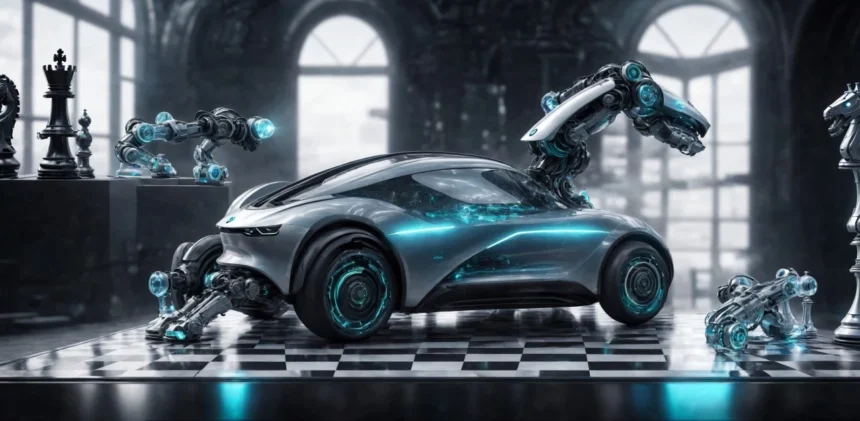Introduction:
The automotive industry is at a crossroads, and the trajectory points towards a future dominated by electric cars. The push for sustainable transportation, advancements in battery technology, and a global commitment to reducing carbon emissions are propelling electric vehicles (EVs) into the spotlight. In this comprehensive exploration, we will delve into the anticipated future of electric cars, examining the key trends, technological innovations, challenges, and the transformative impact that electric mobility is set to have on the automotive landscape in the coming years.
1. Accelerating Adoption Rates:
Market Growth:
The adoption of electric cars is poised to experience exponential growth in the coming years. As governments worldwide implement stringent emission standards and offer incentives to promote electric mobility, consumers are increasingly drawn towards EVs. Market analysts predict a significant surge in electric car sales, with projections indicating a substantial share of the global automotive market by the end of the decade.
Expanding Model Range:
Automakers are responding to the rising demand by expanding their electric vehicle offerings. The future promises a diverse range of electric cars catering to various consumer preferences, including compact city cars, sleek sedans, versatile SUVs, and even electric trucks. This expansion in model choices will play a crucial role in appealing to a broader consumer base.
2. Technological Advancements:
Breakthroughs in Battery Technology:
The heart of electric vehicles lies in their batteries, and ongoing research is driving breakthroughs in battery technology. Advancements in energy density, charging speed, and overall performance are expected to address current limitations, such as range anxiety and extended charging times. Solid-state batteries, with their potential for increased energy density and safety, stand out as a promising frontier for the electric vehicle industry.
Fast-Charging Networks:
The establishment of robust fast-charging networks is critical for the widespread adoption of electric cars. Investments in charging infrastructure are underway globally, with an emphasis on expanding fast-charging capabilities. The future envisions an extensive network of fast-charging stations, making long-distance travel in electric vehicles more convenient and accessible.
Vehicle-to-Grid (V2G) Integration:
The concept of Vehicle-to-Grid (V2G) integration holds immense potential for the future of electric cars. This technology allows EVs to not only draw energy from the grid but also feed excess energy back into it when needed. This bidirectional energy flow contributes to grid stability, enhances renewable energy utilization, and opens new avenues for energy management.
Wireless Charging Innovations:
Wireless charging is emerging as a convenient and futuristic solution for electric vehicles. Automakers and technology companies are investing in wireless charging technologies that allow EVs to charge without physical connections. This innovation is set to simplify the charging process and further integrate electric cars into the fabric of daily life.
3. Environmental Impact and Sustainability:
Emission Reduction Targets:
The global commitment to combat climate change is steering countries towards stringent emission reduction targets. Governments are incentivizing electric vehicle adoption through policies, subsidies, and regulations aimed at curbing the carbon footprint of transportation. Electric cars play a pivotal role in achieving these targets, contributing to cleaner air and a healthier planet.
Circular Economy for Batteries:
As the number of electric vehicles on the road increases, attention turns to the sustainable management of batteries. A circular economy approach involves recycling and repurposing used batteries to minimize waste and extract valuable materials. Developing efficient and eco-friendly methods for battery recycling is a crucial component of the future sustainability of electric cars.
Renewable Energy Integration:
To maximize the environmental benefits of electric cars, efforts are underway to integrate renewable energy sources into the charging infrastructure. Solar-powered charging stations and smart grids that optimize energy usage during periods of high renewable energy generation are integral to creating a truly sustainable electric vehicle ecosystem.
4. Evolving Design and Features:
Integration of Artificial Intelligence (AI):
Electric cars of the future are expected to feature advanced AI systems that enhance safety, efficiency, and the overall driving experience. AI-powered autonomous driving capabilities, intelligent navigation, and predictive maintenance are areas where electric vehicles will showcase cutting-edge technology.
Innovative Materials and Lightweight Construction:
Design trends in electric cars are shifting towards the use of innovative materials and lightweight construction. These changes not only contribute to energy efficiency and extended range but also enhance the performance and agility of electric vehicles. Sustainable materials and eco-friendly manufacturing processes are gaining prominence in the pursuit of greener mobility.
Smart and Connected Features:
Electric cars are becoming increasingly connected, with smart features designed to enhance the driver’s experience. Integrating seamless connectivity, over-the-air updates, and smart infotainment systems are becoming standard inclusions, transforming electric vehicles into intelligent and interconnected hubs.
5. Challenges and Considerations:
Charging Infrastructure Gaps:
Despite ongoing investments, gaps in charging infrastructure remain a challenge. Addressing the need for widespread and convenient charging stations, especially in rural and remote areas, is crucial for the continued growth of electric car adoption.
Affordability and Accessibility:
Affordability remains a barrier to entry for many potential electric vehicle buyers. While the overall cost of electric cars is expected to decrease as technology advances, ensuring accessibility and affordability for a diverse range of consumers is a challenge that requires ongoing attention.
Battery Production and Recycling:
The environmental impact of battery production and disposal poses challenges. Developing sustainable practices for battery production, minimizing the use of rare and environmentally sensitive materials, and establishing efficient recycling systems are critical considerations for the future.
Consumer Awareness and Education:
Increasing consumer awareness and dispelling myths surrounding electric cars are ongoing challenges. Education campaigns highlighting the benefits, dispelling range anxiety concerns, and showcasing real-world success stories are essential for fostering widespread acceptance of electric mobility.
Conclusion:
The future of electric cars is one of promise, innovation, and transformation. As the automotive industry embraces sustainability, advances in technology, and a commitment to a cleaner planet, electric vehicles are positioned to become the driving force of tomorrow. The road ahead involves overcoming challenges, embracing technological breakthroughs, and creating a comprehensive and accessible infrastructure that supports the global shift towards electric mobility. With each passing year, electric cars are not just vehicles; they represent a sustainable and intelligent solution that is steering us towards a greener and more connected automotive future.







